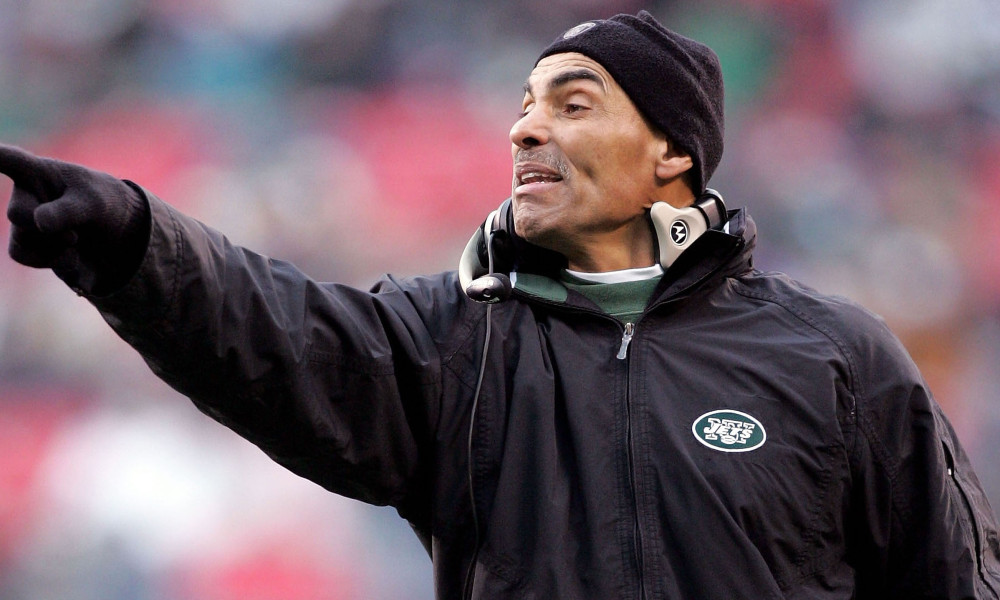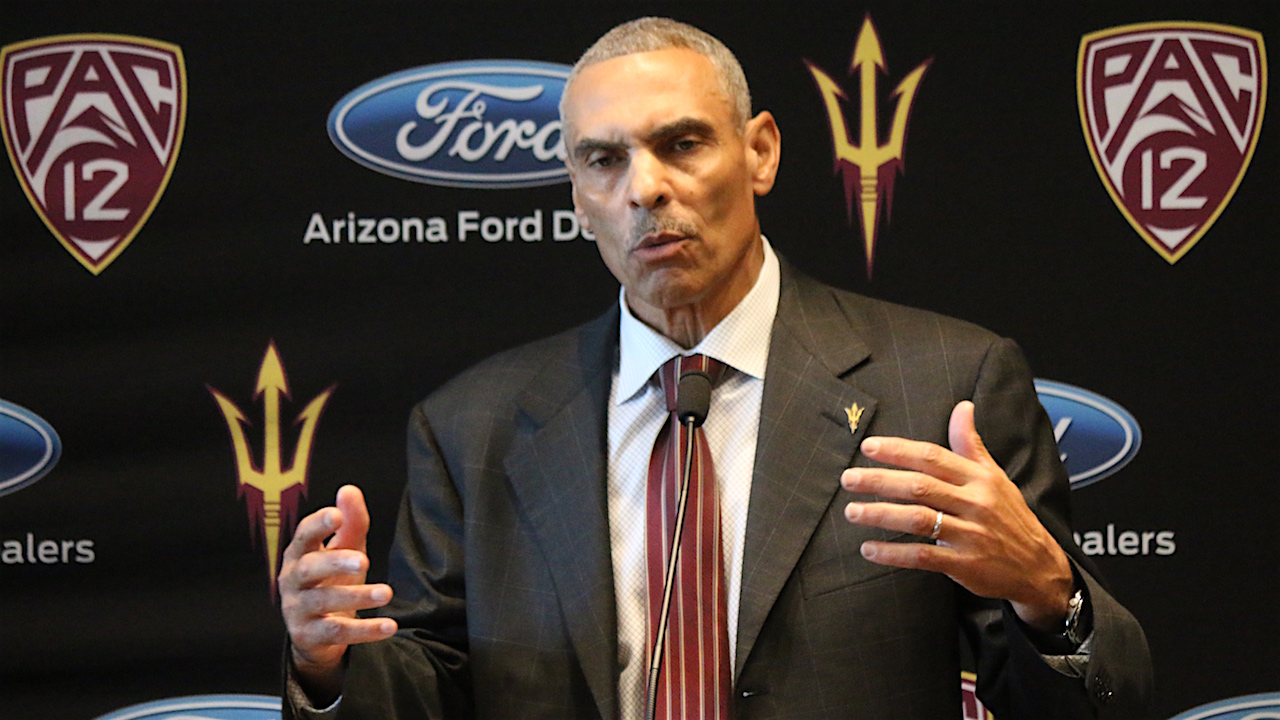The greatest compliment I’ve ever received as a broadcaster came as a result of my lack of knowledge.
I had admitted to a caller on the Suns post game show in 1997 that I was too far away from the Suns bench to know what play was being drawn up at the end of the contest.
The next day, the late Cotton Fitzsimmons saw me in a hallway, and told me I had done a great job because, as he put it, “You said the three toughest words for a broadcaster to say – I don’t know.”
In the years since, I’ve come to learn there are three other words you don’t hear in sports media too often:
I was wrong.
Which makes what was happening on social media late Saturday night all the more impressive. Local and national sports writers and talk show hosts tweeting that they erred in criticizing Arizona State Vice President for University Athletics Ray Anderson for his hiring of Herm Edwards as Head Football Coach.
Really, though, no apology is needed.
For openers, it’s understandable that people were skeptical. Edwards hadn’t coached in college since 1989, had not coached in the NFL since 2008, and while it is true that Edwards probably watched more tape and had broken down more plays as an ESPN analyst than he had as a coach, the fact remained a lot people in the media just didn’t think it was going to work.
Truth is, after just two games, it can’t be said that it’s working or not.
No coach, no new thinking, can be judged accurately after just two games. It can’t be judged after one year.
Bruce Snyder needed five years to produce a Rose Bowl team at ASU. Pete Carroll’s first USC team went 6-6, and was 3-2 five games into his second season.
Still, it’s refreshing to see so many people in an industry that often depends on selective amnesia on the part of its customers readily admit that they may have been too quick to judge, which leads to the second reason no one needs to say so at this point.
We live in an age of instant everything. That includes sports media. Judgments must be made immediately. Our favorite columnist or talk show host must be able to tell us within minutes whether a trade, a hiring or a play call was right or wrong.
Most everyone with a note pad or microphone came out against the hire and Anderson’s new model for operating a football program. Philosophers say we attack that which we do not understand.
The refreshing aspect of all this is that most, but not all, in sports media will change their opinion without telling you they did, banking on the idea that you’ll forget what they said or wrote months earlier.
Given that, I admire the many people who have, in one way or another, admitted they may have been wrong, and apologized for it.
But really, no apology is needed.
What was stated about the hire was an opinion, not fact. There is no right or wrong with an opinion. Facts, however, as the second President of the United States once said, are stubborn things.
There’s another reason no one needs to walk back earlier predictions of doom and gloom. It was something uttered at Edwards’ introductory press conference. Not “I’m on the train”. It was something Ray Anderson said that day:
“Talk less, do more”.
If indeed the hiring of Herm Edwards leads to the goals Anderson set for the ASU Football program, Anderson won’t be the last person to get up and exclaim, “I told you so!” Anderson won’t say anything. It’s not his way.
That kind of philosophy is not good when in the business of broadcasting or writing columns, but it seems, for this particular column, like a pretty good place to stop.
Related posts:

EAST RUTHERFORD, NJ - DECEMBER 11: Head coach Herm Edwards of the New York Jets calls to his team during their game against the Oakland Raiders on December 18, 2005 at Giants Stadium in East Rutherford, New Jersey.The Jets defeated the Raiders 26-10.(Photo by Jim McIsaac/Getty Images)*** Local Caption *** Herm Edwards
REPORT: Herm Edwards Likely ASU’s Choice ASU, Edwards Adds To Coaching Staff
ASU, Edwards Adds To Coaching Staff
 Munn – Herm Edwards Connects ALL Generations
Munn – Herm Edwards Connects ALL Generations